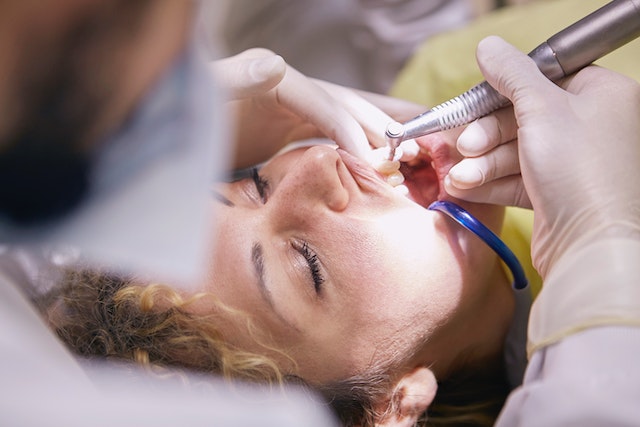Jul
18

Undergoing a dental procedure can often be a source of anxiety for many patients. Fortunately, dental anaesthesia helps to make these procedures comfortable and pain-free.
However, the lingering numbness after the procedure often leads to the question, “how long does it take for dental anaesthesia to wear off?” The answer varies depending on several factors – let’s take a closer look.
What is Dental Anaesthesia?
Dental anaesthesia is a type of medication used by dentists to numb the areas of your mouth before performing a dental procedure. This medication works by blocking nerve signals in your body, temporarily reducing sensation and pain in the targeted area. The purpose of dental anaesthesia is to minimise, if not eliminate, discomfort or pain during dental procedures, such as fillings, root canals, or extractions.
Types of Dental Anaesthesia
There are several types of dental anaesthesia, and the one used for your procedure will depend on various factors, including the nature and complexity of the dental work, your overall health, and your comfort level. When heading to a dental practice in London, you can expect to encounter any one of the following types of anaesthesia:
- Local Anaesthesia: This is the most common type of dental anaesthesia, and is applied directly to the area that needs to be numbed.
- Sedation: This involves using medication to help patients relax during the procedure. Sedation can be minimal, moderate, or deep, and can be administered through inhalation, oral medication, or intravenously.
- General Anaesthesia: This is used for more complex procedures or for patients with extreme dental anxiety. It causes you to lose consciousness, so you won’t feel any pain during the procedure.
Also Read: Why Does Dental Cleaning Hurt?
Factors Influencing Anaesthesia Duration
Several factors influence how long dental anaesthesia lasts. Understanding these can provide a clearer picture of the timeframe within which the numbness will wear off.
Type of Anaesthetic
Different types of anaesthetic drugs have different durations of action. For example, a commonly used local anaesthetic, Lidocaine, can last up to 3-4 hours, whereas Bupivacaine can last significantly longer, up to 8-10 hours.
Procedure Complexity
The complexity of the procedure and the amount of anaesthetic required can influence how long it takes for the numbness to wear off. More complex procedures may require higher doses of anaesthetic, leading to a longer duration of numbness.
Patient Metabolism
A person’s metabolism plays a key role in determining how long dental anaesthesia lasts. Individuals with faster metabolisms may process the anaesthetic more quickly, leading to a shorter duration of numbness. Conversely, those with slower metabolisms might find the effects of the anaesthetic lasting a bit longer.
Typical Duration of Dental Anaesthesia
As mentioned earlier, the duration of numbness from dental anaesthesia depends on several factors. However, on average, local anaesthesia often lasts between 1 to 4 hours: this duration allows enough time for most dental procedures and some extra time post-procedure to prevent immediate discomfort.
Patients should be aware that although the numbness may wear off after a few hours, the healing process continues, and some discomfort or soreness might be experienced once the anaesthetic effects diminish. This is totally normal and can be managed with over-the-counter painkillers, as advised by your dentist.
Post-Anaesthesia Care
While waiting for dental anaesthesia to wear off, there are several things you can do to care for yourself and ensure a smooth recovery:
- Avoid Eating Until Numbness Subsides: Eating while your mouth is still numb can lead to accidental biting of your cheeks, lips, or tongue. It’s best to wait until the numbness has worn off before consuming food. If you need to eat, choose soft foods and be very cautious.
- Avoid Hot Drinks and Food: The lack of sensation could result in burns as you might not accurately judge the temperature of food or drinks.
- Don’t Touch the Numb Area: It might be tempting to poke or touch the numb area, but this should be avoided as it could lead to injury or even infection.
- Rest and Hydrate: After a dental procedure, give your body time to recover. Resting and staying hydrated can also help speed up the removal of the anaesthetic from your body.
Read Next: Will a Dentist Pull a Tooth on the First Visit?
The Bottom Line
Overall, while dental anaesthesia is a critical component for pain-free dental procedures, the subsequent numbness can cause some inconvenience. The duration it takes to wear off can vary widely based on the type of anaesthetic, the complexity of the procedure, and individual patient factors.
Usually, you shouldn’t experience any lingering numbness for more than 3-4 hours for a routine procedure, but do take into consideration fluctuations in this time frame for longer procedures. As always, listen to your body – if numbness persists for an unusually long time or if you experience any complications such as prolonged bleeding or pain, don’t hesitate to contact your dentist.










